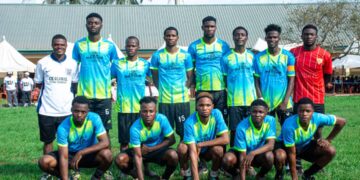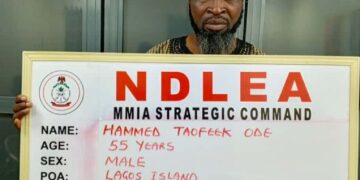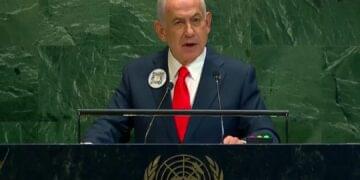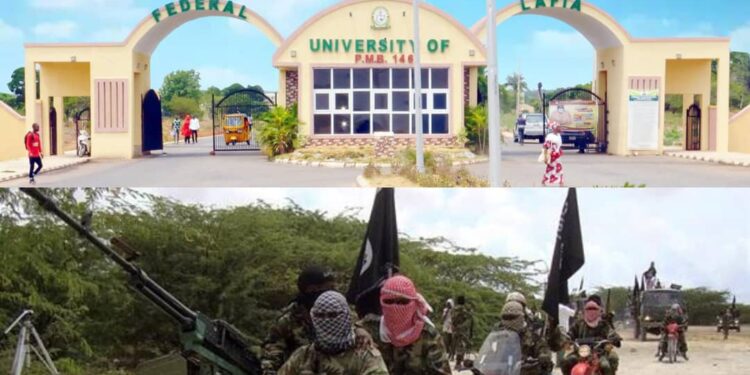An alarming escalation of violence has struck Nasarawa State as armed bandits carried out a large-scale assault on the Federal University of Lafia, resulting in severe physical and psychological trauma within the student community.
According to accounts from university insiders who requested anonymity, the institution has been under siege for over two weeks, with students facing frequent threats including abductions, killings, and sexual violence. The most devastating of these attacks occurred on July 26, 2025, when a full-blown assault was launched.
Witnesses say the bandits moved in a well-organized convoy, targeting densely populated student areas around the university. These include off-campus settlements like Akunza, Gandu, and Burkan Kwato, where many students live due to limited on-campus accommodation.
“On the 26th of July 2025 alone, over 30 female students were raped by the bandits who mobilised and invaded the student villiages in large convoy and vehicles.
“The operation is similar to the Boko Haram episode in the Chibok and Dapchi Girls Kidnap incident. The Lafia rape is a sad reminder of the collapse of the Nigerian State that has led to the gross devaluation of life and human right abuses of the Nigerian people in the hands of bandits and terrorists.
“In the same operation, male students who resisted the invasion were brutally hacked and butchered by the bandits. By the end of the invasion, the bandits had left a trail of blood, tears and sorrows on the mind of the University community.”
Despite the shocking nature of the event, sources express frustration at what they perceive as deliberate media silence and a lack of political action.
“What is more worrisome is the fact that the invasion did not draw the attention of both the local and national media. It appears, the non media coverage and reportage is a deliberate strategy of conspiracy of silence by the ruling political class of the state.”
Since its founding in 2011, Federal University of Lafia has struggled to keep pace with rising student enrollment. Insufficient housing has forced many students into poorly secured neighbouring communities, exposing them to potential harm.
The incident has sparked calls for urgent intervention, with some likening the episode to a smaller-scale version of the infamous Chibok abductions.
In response, Nasarawa State Police spokesperson Ramhan Nansel refuted the reports of mass rape. Speaking with SaharaReporters, he offered a different account of the events:
“What happened was that armed robbers attacked the University on July 31st, and it was during the incident that they robbed a lady of her bag and then one male student was injured with cutlass while trying to escape.”
He further dismissed the claim of mass rape as implausible:
“We cannot be in Lafia here and 30 students would be raped while we would do nothing and the university management will keep quiet too. It is a sensational report and I was surprised when I heard it that 30 students were raped.”
As the university community grapples with the aftermath, pressure is mounting for authorities to act decisively to protect students and bring perpetrators to justice.




































